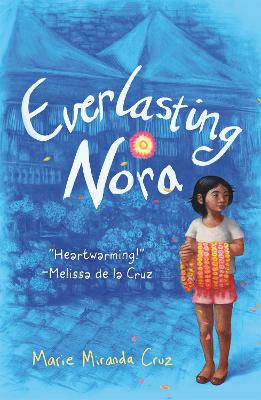Reviewed by Briana @ Pages Unbound on
The plot of Nora’s search for her missing mother gives the book structure and adds some excitement, even some humor, to a book that might otherwise seem overly dark (even considering the fact that having your mother disappear while you’re living alone in a cemetery is pretty dark in the first place). However, in some ways the quest structure and the minor hijinks that ensue are fairly typical middle grade fare. It’s really Nora’s personality, her struggles, and her growth that put their stamp on the plot and make the book engaging.
Throughout the novel, Nora learns a lot about herself and about the world around her. Her standard of living before the fire seemed to have been comfortable, though it seems everyone in the book is a bit hard up for cash, and so entering poverty forces her to take a good look at her surroundings. It gives a her a new perspective on things like privileged she was to have been able to attend school. However, it also forces her to reevaluate the people around her, to realize her old friends might not judge her for being poor and to realize that the people who live around her in the other grave houses are people with dignity, too. She learns to appreciate the simple things in life and that hope must be combined with hard work.
The one thing the book left unexplored is Nora’s mother’s gambling addiction and how realistic it might be for her to actually overcome that. The book isn’t shy about delving into the pain and trouble this addiction causes, but it does seem to take the overly optimistic tack that the simple willingness to stop gambling will immediately solve all problems. To be fair, the book ends before readers can see how this really plays out, and ending on a note of hope is great, especially for middle grade. It also makes sense that a child’s POV would be “If my parent really cared, they’d stop gambling” and sort of expect it to be that easy. So maybe exploring the real difficulties of beating an addition, even once you’ve put your mind up to it, is just a topic for a different book.
Everlasting Nora is a quick read, but it’s compelling and stands out from a lot of the middle grade crowd.
Reading updates
- Started reading
- 22 October, 2018: Finished reading
- 22 October, 2018: Reviewed
